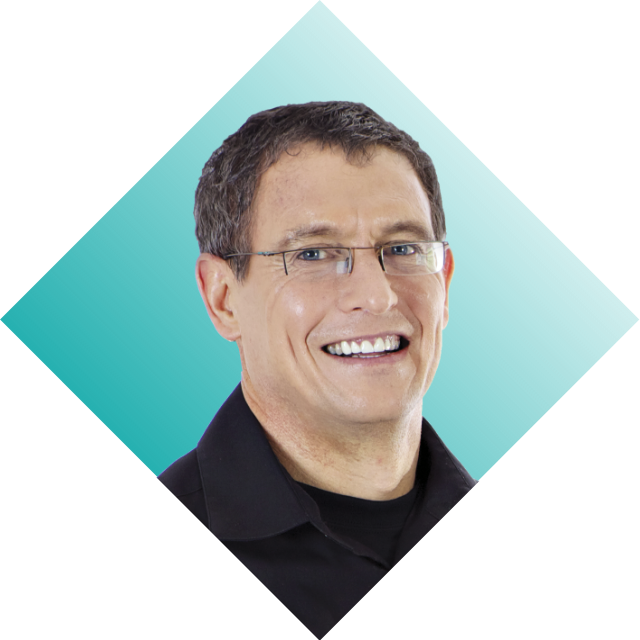We call it a sixth sense, 'gut feel', intuition – or even instinct. Are our minds attuned to hear this inner voice? More importantly, do we pay attention and listen to it?
In moments of reflection and recollection, we may be struck by how fortunate we were to receive pithy advice from someone far removed from our decision: “I don’t know. What does your gut say?”
Yet we don’t easily acknowledge and recognise the validity of this advice, how our inner voice, in its apparent silence, does indeed offer guidance. And that its soundness may surpass much of the professional opinions, the data, and the voluminous research we may pore over.
What is an inner voice, and how does it manifest?
Psychologists and cognitive scientists view intuition as a rigorous mental puzzle, albeit one in subliminal form. Our brains make associations between the problem and our memory bank of experiences, observations, and information.
So it’s misleading to believe that intuition is separate from reason; thoughts have actually been germinating in our subconscious mind.
These may seem random, but that’s because we’ve been unaware of the process. Tel Aviv University professor Marius Usher believes intuition is an integration of extra-sensory and rational processes, a fusion of the connection of scattered dots and ‘Big Data’ brain functions.
And the combination leads to better decisions. The subjects in his study, using only their instincts, made the right decisions up to 90% of the time.

“The human brain has an inherent ability to find the best solution, lightning fast.”
Marius Usher
What’s astonishing is how this contrasts with the performance of experts. As specialists in their field, experts are highly trained, experienced, and supremely smart. But, in The Black Swan, Nassim Taleb distils the outcome of studies proving that their predictions are only fractionally better than random guessing. Immersed in specialist expertise, they are drowned by their professional subject. Perhaps a better way to put this is that they are intuitively weak. They have shut down their inner voice.
The biological basis behind the power of our intuition.
The shape of Homo sapiens’ cognitive powers formed somewhere between 40,000 and 200,000 years ago. It follows that – although our level of intellectual rationalisation developed far more recently – our minds have fused an analytical gearing with an inarticulate sensibility which embraces spirituality accumulated over eons.
But let’s take a step back. Richard Dawkins observes in his seminal book The Selfish Gene that “When a man throws a ball high in the air and catches it again, he behaves as if he had solved a set of differential equations in predicting the trajectory of the ball. He may neither know nor care what a differential equation is, but this does not affect his skill with the ball.
At some subconscious level, something functionally equivalent to the mathematical calculations is going on.”
If our minds can solve differential equations nearly instantly, this subconscious analysis and comprehension is surely in play in resolving other problems.
And, in survival situation, in crises, our gut feelings can be our guardian angels. Time and again we hear of ‘The Voice’ being a guiding light to safety in the great survival stories.
In 1972 a small aircraft crashed in the Andes
Many of the Uruguayan rugby team and their family and friends on board perished. Miraculously, however, 33 people initially survived. But for 72 days, their survival instincts were tested beyond imagination. Beyond hope.
Beyond belief. In the end, 16 people were rescued thanks to the courage, fortitude, mental strength and wisdom of two men in particular, Nando Parrado and Roberto Canessa, who traversed extreme, frozen, and hostile mountain terrain without equipment for ten days to civilisation.

More so than the body, theirs is a story of the power of the mind, captured poignantly in Nando’s book Miracle in the Andes. When Nando woke from his coma a few days after the crash, his first thoughts were to heed a voice not to cry: “Tears waste salt.
You will need salt to survive.” And then again the inner voice, explaining how to react to the death of his family and many friends: “They are all gone. They are all part of your past.”
“Don’t waste energy on things you can’t control. Look forward. Think clearly. You will survive.”
Nando Parrado
In normal life it’s easier and comfortable to ignore intuitive triggers
Physically, we default to an innate stasis which counterbalances what we may sense as a pull towards action. Our minds work the same way with thoughts.
Indeed, distinguished Jungian professor and psychologist James Hollis is concerned that modernity is causing us to lose touch with our souls. In conforming to society’s expectations, and conditioning ourselves against pressures, over decades we become numb to our inner voice. This separation, he believes, is “the problem of our time.”
Intuition and inner voice should not be confused with impulse, or the fight-freeze-or-flight response, which is an instantaneous reaction to danger. In decision-making terms, impulsiveness is akin to a degree of recklessness, and heavily prone to all sorts of skews – the biases of availability, confirmation or recency, or influences like the bandwagon or halo effects.
Our inner dialogue, by contrast, is a questioning process; although it is sometimes overly burdened with self-doubt, it is an inner guidance system towards better outcomes.
We routinely doubt our inner voice because we crave certainty
Certainty seizes us more than truth; loud, confident assertion captures attention ahead of thoughtful consideration.

Without the supposed reassurance of data, or rationale, we feel some kind of lodestar is missing. Without it, trusting our judgement requires belief. And without this certainty, we also seek affirmation from others as a form of back-up, a type of security blanket.
The duality of human nature is also at play. Sometimes we are fearful: our instinct, our voice, tells us to keep asking questions, in effect, to press pause on the decision. But, paradoxically, we may then ignore our intuition by racing ahead.
Our uncertainty becomes a trap precisely because we are unable to accept and embrace vulnerability and be confident of forging a path through difficulty.
High-performing people cultivate a keen perception of their inner voice
But it isn’t easy to mould our personalities, and master our actions, according to how we wish. Apart from forces we may be oblivious to, other hindrances relate to our environment, and to our natures.
In the film The International a doomed double-agent laments: “I was once destined to become a man like yourself. True-hearted, determined, full of purpose. But character is easier kept than recovered.”
"If our intuition, gut feel and inner musings are valuable, how do we shape and nurture them?"
More specifically, how do we know when to grasp their accuracy, or recognise when they may represent a false flag?
This is not as hit-and-miss or near-impossible as it may sound.
Find a way to be still. An openness to finding the voice is the first step to being able to hear it. This is particularly important in times of stress or high emotion, as negative thoughts or feelings of despondency surface.
For some, this involves quietude and serenity, a form of letting go, mindfulness or even meditation. For others, it may require an intensity of concentration. The key is that in our crowded, cluttered modern world, we will hear ourselves better if we put distractions aside. Make time to think, time to be quiet.
Look for inspiration. Reading the wisdom of others can unlock neural pathways. If you tend to be wary of self-help books, rest assured there is rich guidance in wonderful literature such as Yann Martel’s Life of Pi, or Do Not Say We Have Nothing, a 2016 Booker Prize finalist by Madeleine Thien. Consider this extract from The Alchemist by Paulo Coelho:
“…intuition is really a sudden immersion of the soul into the universal current of life, where the histories of all people are connected, and we are able to know everything, because it’s all written there.”
If you are a person of faith, you may find guidance in religious texts, or the power of prayer. (Incidentally, it makes sense that prayer is described as “powerful”, because its process and intent is often aligned to finding that inner voice.)
Exercise the ability. Once you’ve awoken to your inner voice, the ability to hear it can be likened to building a muscle. Like deliberate practice, the more it’s developed, the better it enables, and the easier it becomes available to us.
Externalise. Our intuition is a guide rope, and whilst we can flex the cord and tighten the strands, no guide can ever be without imperfection or room for improvement.
Let go of the demand for certainty. One of the mindset shifts required of this process, is to accept that very few issues can ever be reduced to a black and white paradigm.
Implications for business and work environments
Especially in our Covid-19 crisis, chief executives need to think differently about how to manage adversity. Those using emotion and intuition as well as practical rationalisation and data may achieve better results through the crisis and in the long-term.
This more humanly holistic management style drives collaboration and nurtures creativity within and beyond the enterprise, in a virtuous circle of high performance.
One of the clearest recent examples of the benefits of intuitive thinking in business – the clarity of inner voice – is Paul Polman, who recently retired as chief executive of the world’s largest consumer goods company, Unilever. He was named as the company’s new CEO in 2009. The effects of the 2008 financial crisis were at their harshest, and Unilever faced daunting challenges to its brand strengths, revenues, profits and share price.
His appointment was expected to result in tightened strategies, slashed expenditures, sell-off of underperforming brands, closure of some divisions and factories, and a workforce cut.
Instead, he shocked the business world by launching a radical sustainability initiative as the new mission and heartbeat of the company. Unilever’s ‘Sustainable Living Plan’ was to be its reason for being – not revenues, margins, or profits; Polman saw these as flowing axiomatically from his vision of Unilever as a human-centric company which would now prioritise advancing the health and well-being of the billions of people who used its products.
He also announced the cessation of Unilever’s quarterly financial reports, believing these harnessed the company to short-term thinking. An immediate effect was an 8% fall in Unilever’s share price.
But he persevered, and inspired the company to embark on a transformational journey. By the end of his tenure in 2018, Unilever had generated shareholder value increase of almost 300%, and the company is now admired as a pioneer in the re-design of supply chains to match green, sustainability and people-first agendas.
Polman’s inner voice will have urged him convincingly in 2009 – but how he must have fought the doubts and the doubters to stay true to it in those first few years that followed!
And it helps to share your inner voice
This finetunes what we are hearing, and guides the subconscious thought process towards decisions and action.
It’s up to us to govern our actions with our heads and hearts
The coronavirus pandemic has awakened a deeper spirit of humanity in many of us. If we are true to this – putting our innate humanness first – we should reconsider how we weigh that special voice inside our heads.
"Especially in times of crisis, the optimal mix of logic, emotion and intuition could be our best bet towards high performance and optimal outcomes."
World-renowned psychologist and research professor Brené Brown specialises in understanding the complexities of and interrelationships between courage, vulnerability, authenticity and shame. She believes that the dictionary’s definition of intuition – “direct perception of truth or fact, independent of any reasoning process” – is one dimensional.
Rather, she believes intuition embraces multiple forms of knowledge and understanding. This is her version:
“Learning to listen to and trust that inner voice can be integral to becoming our best selves.”

